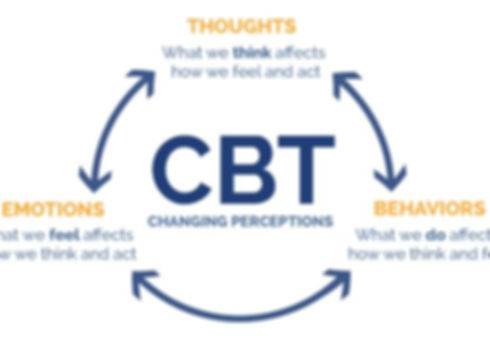Child, Parent &
Family Therapies
Family Therapy
Family therapy is a shift away from narrowly treating only the individual “problem child” to include and treat wider systemic family issues. Even when individual biological or personality factors are involved, the entire family is usually affected. A family therapist sees the family as the “client,” not just the most difficult members of the family. Yet family therapy doesn’t mean the entire family needs to be present at every session. Sometimes family issues can be address with one or several members of the family, at a time.

Family therapy explores how family members interact and communicate with one another. These patterns frequently mirror habitual interactions that occur at home and often maintain the status quo. The family system tends to have a life of its own, as an emergent property separate, but related to each individual member. When a family system is maladaptive, each individual member will manifest their respective and at times different symptoms. Even when one individual is ill or suffering, the entire family is impacted.
Dr. Bruno has been trained by experts in several different approaches to family therapy. A family therapist often helps to point out to family members their patterns of relating to one another; that they might not have noticed, as well as encouraging different ways of responding between family members. These changes in awareness, response and communication can help to trigger positive shifts in the whole family system, often leading to a healthier and a more adaptive family constellation. Parents may need help with behavioral tools or role-modeling to improve their interactions with their children or adolescents
Parent Child Interaction Therapy
Parent-child interaction therapy (PCIT) is an evidenced-based treatment designed for young children typically between the ages of two years to eight years of age. PCIT has shown effectiveness with young children having aggressive and oppositional behaviors, often with ADHD symptoms. PCIT is designed to change dysfunctional parent-child interactions through direct coaching of authoritative parenting skills during play and task specific situations in the clinic. Parents wear a “bug-in-the-ear” hearing device during play with their child in a playroom, while the therapist uses a microphone to coach the parent during live observation applying specific skills.
The first phase of treatment emphasizes relationship attachment and child-directed play skills.Parenting skills, like reflective listening and mirroring are designed to improve the quality of the parent-child relationship and to lay the foundation for effective discipline.


The second phase of PCIT treatment helps parents to establish control over disruptive child behaviors by using clearly communicated, age-appropriate instructions and consistent positive and negative consequences for child behaviors.
Play Therapy
Play therapy refers to a wide variety of treatment methods, all of which incorporate the use of play. Play therapy is based on the belief that play is an essential part of children's lives and critical to healthy development. Play is the language of children. Children, especially younger children, naturally try to resolve psychological conflict by engaging in play. Like the way dreams may help resolve unconscious complexes, play therapies offer children a safe place to explore, relive and find creative solutions to challenging or traumatic experiences. Play therapists are trained to assess and understand the metaphorical content of children's play.


You can discover more about a person in an hour of play than in a year of conversation. – Plato
Play therapy has been effective with children whose problems are related to life stressors, such as divorce, death, relocation, hospitalization, invasive medical procedures, chronic illness in self or family, domestic violence and natural disasters. Without having to depend on words, children can increase their capacity for expression through play.
Through play, children can learn about their own capabilities and limitations, social rules and the difference between fantasy and reality. They can rehearse new skills and come to master difficult situations. Play helps children find words for their experiences so that their peers and the adults in their lives can better understand them. In play therapy, children can "play out" their concerns at a safe psychological distance within a protected play environment. This helps the child to discover creative solutions or uncover inner resources.
Play therapists use their understanding of play to increase children's coping skills and to share their understanding of the play to parents, caregivers and educators involved in the child’s life. In the playroom under the guidance of a play therapist, children can confront their problems in a safe environment in order to identify, confine and master them.
Parents are an integral part of the play therapy process. Therapists meet and consult with parents to support and enhance the therapy work the child is doing in play sessions. Parents are crucial to provide feedback to the therapist about changes at home or school. Also, the therapist may help to give parents suggestions on how to better support the child in their home or school environments.




